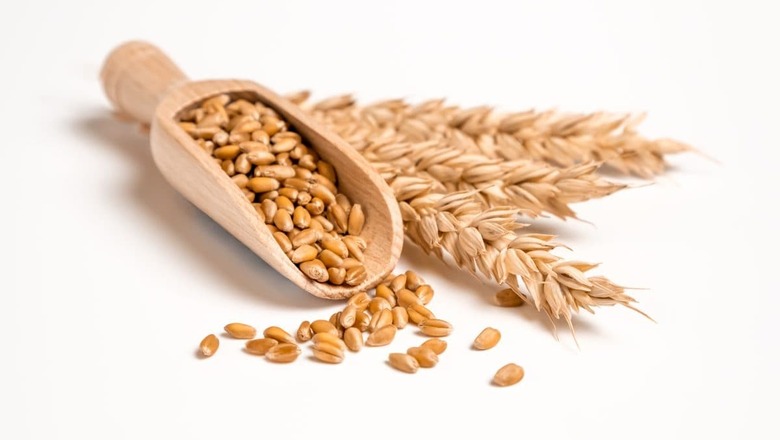
views
It is important to make certain modifications such as eating healthy and being physically active to lead a healthy lifestyle. While some foods may be abundant in nutrients and may offer a plethora of health benefits, they may not suit your body. Dr Anjali Mukerjee, a nutritionist, dropped an Instagram post a while ago where she acknowledged people who are intolerant to wheat. In simple words, it is harder for them to digest wheat. Furthermore, they experience bloating, headaches, joint pains, diarrhea, and stomach aches after consuming it.
Also Read: Cheers! How India is Eager to Experiment With New Varieties of Beer
If you are wondering how to find out whether you are gluten sensitive or not then worry not. We have got you covered. Dr Anjali penned in her post that one should avoid gluten (in wheat, rye, and barley) for a month if they are experiencing unexplained symptoms such as:
Stomach ache and bloating
Water retention and heaviness
Urticaria
Eczema
Coated tongue
Stiffness in joints
Weakness or tiredness
Muscle stiffness, notably on waking up
Following this, the nutritionist mentioned that if your symptoms get better post eschewing gluten for a month, it means you are gluten sensitive.
Now the nutritionist claims that this happened due to the production of an inflammatory response to wheat proteins by our body. Hence, you should strictly start avoiding it. The expert also articulated some serious conditions that immediately require one to cut off gluten from their diet. The conditions are as follows:
Gluten intolerance, celiac disease: When a person tends to get a serious reaction due to gluten and protein possessed by wheat.
While concluding the post, she claimed that wheat is an intrinsic source of dietary fiber, starch, energy, proteins and vitamins. However, there are alternatives that one can resort to.
We have curated a list of grains and flours that you should inculcate into your gluten-free diet if you haven’t already:
Rice, including wild rice
Arrowroot
Amaranth
Soy
Flax



















Comments
0 comment